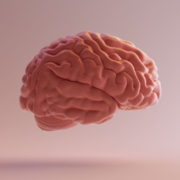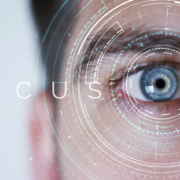Early Signs of Cognitive Decline and Resources to Improve Brain Function
Have you ever felt like your brain just isn’t functioning as fluidly as it usually does? And then one day of feeling this turns into multiple days and maybe even weeks or months? Perhaps you feel like you’ve lost your creative edge, and your productivity at work has dramatically reduced. Do you feel foggy, unfocused, forgetful, and fraught with the idea that maybe something is wrong with your brain? It sounds like you might be experiencing a form of cognitive decline.
But before you jump to any conclusions—cognitive decline is not necessarily indicative of looming dementia—is important to:
- Know the facts about brain health and normal aging
- Learn the early signs of cognitive changes
- Understand there are easy solutions to reduce risk factors of cognitive issues and improve cognitive wellness
What to Know About Healthy Brain Aging
With living comes aging—it is just a natural part of life. However, normal aging does not have to be associated with words like disease, dementia, debilitation, and decline. It is normal for areas like memory, attention, language recall, problem-solving, and processing speed to not remain as sharp or quick as they were in the earlier part of your life. The rate of slowing down cognitively with age depends on many different factors, such as nutrition, NAD+ deficiency, impaired sleep, lack of social connections, intellectual inactivity, mental health, and physical inactivity. As you can see, these are all within your control to influence.
The future (short-term and long-term) of your cognitive function will result from being proactive and preventative about your brain health. A major added benefit of a brain-healthy lifestyle is that what is good for the brain is good for your entire body.
- Unleash your brain’s potential with diet
- Find out everything you need to know about NAD+
- Start sleeping better with this complete guide to your circadian rhythm
- Learn about the importance of mental health and our modern culture
What Causes Cognitive Decline
There’s no single cause of cognitive decline, though it’s most common in seniors and those who’ve experienced traumatic head injuries or other neurological conditions. Other common causes include:
- Onset of Alzheimer’s or dementia
- Stroke
- Untreated post-traumatic stress (PTS)
- Developmental disabilities
- Clinical depression
Those who smoke are at a higher risk of developing cognitive decline than those who don’t.
Signs of Cognitive Decline
There are several types and severities of cognitive decline: brain fog, mild cognitive impairment (MCI), dementia, and subjective cognitive decline (SCD). Early stages of brain function decline can manifest as a wide range of slow-forming and subtle symptoms or persistent and very noticeable symptoms of brain changes.
These signs of cognitive decline can include but are not limited to:
- Chronic fatigue
- Depression
- Difficulty concentrating
- Forgetfulness
- Memory loss
- Mild confusion
Cognitive decline can affect all aspects of your daily life, from your career and relationships to your passions and overall health and happiness. Recognizing potential early signs of cognitive decline will better equip you to take action and seek lifestyle changes and therapies that might improve your cognitive function and/or quality of life.
Reclaim your brain with this complete guide to cognitive health.
Symptoms of Brain Fog
Brain fog causes your brain to feel hazy, sluggish, and scattered. It can make you feel like your ability to think, understand, remember, and concentrate is suboptimal. Brain fog affects both your professional and personal life. This form of cognitive dysfunction can also make you irritable, overwhelmed, stressed, depressed, and tired. Brain fog has been associated with Lyme disease, chronic fatigue syndrome, chronic stress, and many other medical conditions. It is often a symptom of one or more underlying health conditions.
Memory Loss
While everyone occasionally forgets things, clinical memory loss is a serious symptom of cognitive decline that can make it challenging or unsafe for a person to be alone.
If a person has clinical memory loss, they’ll likely experience several of the following symptoms:
- Asking the same questions over and over
- Frequently forgetting common words during conversations
- Mixing up words, e.g., calling a chair a table
- Misplacing items in unrelated places, such as leaving reading glasses in the freezer
- Getting lost in a familiar place
- Unexplained mood fluctuations
Mood Changes
As noted above, unexplained mood fluctuations may indicate a change in cognition. These fluctuations are partially due to the frustration and fear someone experiences when they’re unable to function normally. They can also occur as the result of changes in brain chemistry and structure that accompany cognitive decline.
Distractedness
Though being easily distracted is often just a symptom of being overtired or stressed, a chronic inability to concentrate may indicate a larger problem. A person may be experiencing cognitive decline if they’re unable to:
- Follow a conversation
- Respond appropriately to questions
- Interrupts conversations frequently
- Complete tasks in a reasonable amount of time
Reduced Motor Skills
Partial paralysis or a reduction in motor skills are frequently symptoms of a stroke or memory-related conditions like Alzheimer’s. General cognitive decline due to aging or mental trauma may also affect a person’s motor skills in the following ways:
- Tremors or shaking in the hands
- Loss of fine motor skills (e.g., unable to hold a pencil)
- Difficulty speaking (e.g., slurred or slow speech, long pauses)
- Unsteady gait while walking
Learn about the top therapies to combat brain fog
What Is Mild Cognitive Impairment?
Mild cognitive impairment (MCI) is a cognitive impairment that is greater than expected for an individual’s age, education level, and development. MCI falls between cognitive decline associated with normal aging and a more serious cognitive dysfunction like dementia. Symptoms may include forgetting things more often, regularly losing your train of thought, feeling increasingly overwhelmed, and making more impulsive decisions and poor judgments. Unlike brain fog, MCI can affect your motor skills, social behavior, hygiene, learning abilities, sense of direction, and personality.
How Are MCI and Dementia Different?
The difference between MCI and dementia is that MCI doesn’t typically impair a person’s ability to carry out everyday tasks and daily activities. It is important to understand that dementia is not a normal part of aging. Early signs of dementia may include difficulty following conversations with loved ones, becoming easily confused, becoming disoriented about time and familiar places, a noticeable change in thinking skills, and finding it hard to carry out familiar tasks.
Do You Have Subjective Cognitive Decline?
Subjective cognitive decline (SCD) is “a self-reported experience of worsening or more frequent confusion or memory loss,” according to the Center for Disease Control. It is one of the earliest warning signs of Alzheimer’s disease and other types of dementia and is more common in older adults. SCD can significantly impact individuals’ ability to care for themselves, including eating properly, personal hygiene, completing chores, paying bills, and staying safe.

Treating Cognitive Decline
Improving your cognitive health is all about healthy lifestyle choices and recognizing that brain health and whole health are interconnected. The choices we make every day directly affect our comprehensive well-being from top to bottom or from your brain to your toes.
While we can’t control everything (aging and genetics do play a role), we can control a lot, especially the decisions we make on a daily basis like diet, exercise, sleep, and screentime. We can also further support our brains through natural therapies like NAD+ Brain Restoration Plus therapy, which works by supplying the brain with what it needs to return to a state of optimal functioning, and brain supplements like Nadovim.
Bonus: Continual learning is a great way to keep your brain sharp. And utilizing the resources provided in this article will help you further your education and set you in the right direction toward improving your cognitive health.
NAD+ Restoration Plus Therapy
NAD/Brain Restoration Plus (BR+) therapy is a comprehensive, nutrient-based detoxification treatment. It uses the coenzyme nicotinamide adenine dinucleotide (NAD) to replenish the neurotransmitters in your brain—a process that improves many areas of cognition, including:
- General cognitive function
- Withdrawal from addictive substances
- Reduced anxiety and depression
- Reduced acute or post-traumatic stress (PTS)
Depending on your needs, we introduce the NAD to your body intravenously or via nasal spray.
Biocharger
Vibration and frequency—especially in the form of light and sound—have profound effects on our physical bodies. Harmful frequencies, like UV radiation or loud music, can damage our bodies.
The opposite is true for gentler, more beneficial frequencies like those emitted by the BioCharger NG. This device transmits a blend of energies to create a pulsed electromagnetic field around your body. The field reinvigorates you at a cellular level, restoring your strength, stamina, coordination, and mental clarity.
Chelation Therapy
Chelation therapy introduces specific compounds to the body that bind to heavy metals so they can be flushed from your system. During the procedure, we deliver an intravenous injection of ethylene diamine tetra-acetic acid (EDTA) into the bloodstream. The EDTA grabs onto heavy metals and toxic minerals in your system and carries them out of your body as waste.
This process improves cognition by flushing toxins from the arteries in the brain, enabling oxygen and nutrients to flow more easily into that area.
Disclaimer: The statements made in this article have not been evaluated by the Food and Drug Administration. Any products or treatments mentioned are not intended to diagnose, treat, cure, or prevent any disease. Please consult a licensed medical practitioner for medical advice.
At Innovative Medicine, we believe in transparency. We want you to know that we may participate in affiliate advertising programs pertaining to products mentioned herein.
See how we can help you restore complete health of body, mind & spirit.
Join our mailing list and receive exclusive offers + information!







Leave a Reply
Want to join the discussion?Feel free to contribute!